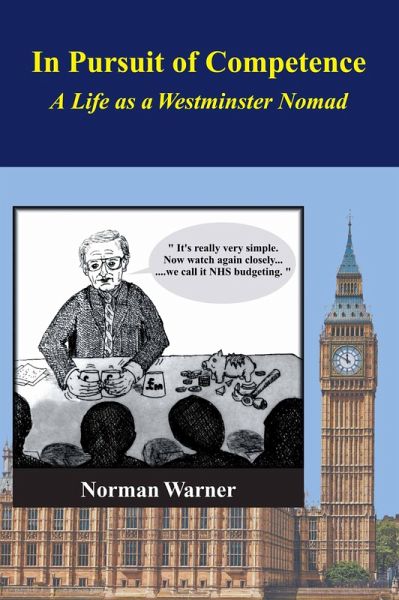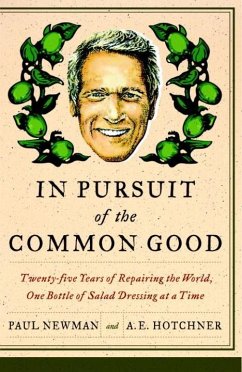
In Pursuit of Competence (eBook, ePUB)
A Life as a Westminster Nomad

PAYBACK Punkte
0 °P sammeln!
This is a memoir covering some 50 years' involvement with delivering public services in a wide range of roles: civil servant; local government; chairing inquiries and public bodies; special adviser; Minister; and Parliamentarian. The book's topic areas include the NHS, social services, social care, welfare benefits, human rights, criminal justice and constitutional issues like House of Lords reform. It starts with a government apprenticeship in the 1960s and ends with Brexit and Covid19. It covers successes and failures; and identifies the limitations of our institutions. The book ranges over ...
This is a memoir covering some 50 years' involvement with delivering public services in a wide range of roles: civil servant; local government; chairing inquiries and public bodies; special adviser; Minister; and Parliamentarian. The book's topic areas include the NHS, social services, social care, welfare benefits, human rights, criminal justice and constitutional issues like House of Lords reform. It starts with a government apprenticeship in the 1960s and ends with Brexit and Covid19. It covers successes and failures; and identifies the limitations of our institutions. The book ranges over 1970s political battles; Thatcher's efficiency drive; social services and community care reforms of the 1980s and 90s; and tackling child abuse. A diary kept for the 1997 Election year sets out what it was like taking over government after a long period in Opposition. A major reform of the youth justice system is described, along with developing the Blair government's family policy. Much of the book is concerned with the NHS and its shortcomings as well as its iconic status in the UK. There are chapters on life as the pharmaceuticals Minister; implementing NHS targets and cutting its bureaucracy; and trying to instal a mega NHS computer system. The chapters on implementing Tony Blair's NHS reforms with more patient choice and competition illustrate how difficult public service reform is. The book poses the possiblity that the NHS in its present form is unsustainable; and explains the failure to fix the funding of social care. Life in the House of Lords is described and why it needs major reform. The book concludes with some ideas on how the Government could build back better after Brexit and Covid with public sector reform.
Dieser Download kann aus rechtlichen Gründen nur mit Rechnungsadresse in A, B, BG, CY, CZ, D, DK, EW, E, FIN, F, GR, H, IRL, I, LT, L, LR, M, NL, PL, P, R, S, SLO, SK ausgeliefert werden.













